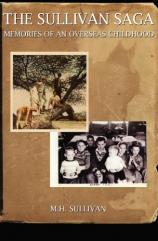While living in Moscow during the 90’s I got pregnant and went to the US to have my baby. I retuned when he was seven weeks old.
On arrival at the airport after traveling for 15 hours, we were ushered to the head of the line at passport control and breezed through customs. My husband showed up about 10 minutes later saying he had a flat tire. So we took a taxi to the tire repair shop and waited for it to be fixed before finally getting home.
The apartment was a horrible mess. Boxes everywhere. Our previous landlords had kicked us out of our last apartment mainly because our one year lease was up but also because we had moved some of the books they left in the living room. They didn’t want us to touch any of their stuff. Go figure. So on to apartment number 4.
The new apartment had no furniture except for a couple of chairs in the living room and a crib for the baby so we had to sleep on the floor. Luckily there were armoires so we could at least unpack stuff. I spent the first three days doing nothing but unpacking and taking care of my child. It finally got to a point where I could tolerate it. Unfortunately the washer started acting up so there was laundry up the wazoo.
I breast fed my baby for six months and then I had to go back to work so I switched to formula. I found one that didn’t make him sick and managed to get a regular supply at the children’s department store, Detsky Mir. After a few months they ran out. I went to every store I could think of looking for formula. Sometimes I could find it at a kiosk on the street. I was then forced to switch to a different brand and hoped he could tolerate it. Luckily he did but that brand disappeared as well. We did make it through until he went off the formula but there were times when I thought I would have to beg somebody to ship me some.
I’m sure some of you thinking – formula? Ugh. She could have made her own or pumped. Ugh. I had plenty of other problems to deal with so it just wasn’t an option. I never considered it. But he survived and grew into a healthy child.
A large healthy child. I used cloth diapers until he grew out of them and then I switched to paper. He got so big I had trouble finding diapers to fit him. I went through the same drill as with the formula, hitting every store I could think of. I finally connected with a woman who knew of a place where I could get extra large diapers.
She gave me an address in a Soviet apartment block. The entrance was around the back and downstairs into the basement. A very large man in a leather coat guarded the door. I felt like a criminal. Inside was a large room with a man sitting at a small desk in the entranceway. Boxes of diapers were piled high in the back. He had what I was looking for and I bought a large box to keep me going for a while. Sometimes he would be out and I would either have to go back on the prowl or buy a smaller size. Potty training didn’t come soon enough.
By the time we left Moscow, six years later I could have purchased any formula and any diaper I wanted easily. My timing was off.
By the time I left, they had Ikea. Civilization had arrived.


















